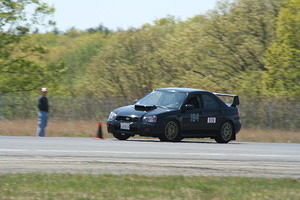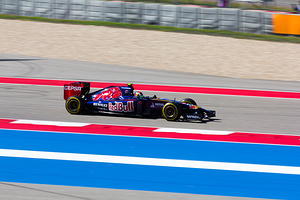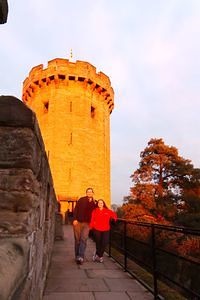“Engineer the Future, Sharpen your Competitive Edge” was the theme of this year’s WIE Professional Development Seminar held in White Plains, NY on September 25-27, 2009. I had the privilege of attending Friday night opened with an introduction from the conference organizer, Darlene Rivera, and a discussion on WIE from Karen Panetta, WIE Committee Chair. Karen’s talk focused on the perception of women in engineering and how she is working to change that through her Nerd Girls program at Tufts University. She also spoke about activities to encourage women in engineering around the world in different WIE groups. Friday evening continued with a discussion on Google’s technologies and Work/Life Balance by their NY R&D director Corinna Cortes. She discussed upcoming technologies, and new Google features including Google Trends, which allows you to show search patterns. For example, Corinna showed how the flu can be predicted by the about of searches for flu and similar phrases. Friday evening concluded with networking over a chocolate, wine and cheese.
The majority of the program was held on Saturday. The day began with opening remarks from the conference chair, Darlene Rivera. Howard Michel, Region 1 Director and Charles Rubenstein, Region 1 Director-Elect discussed their support for WIE and welcomed everyone to the conference. Charles particularly emphasized the Region 1 is looking for Board of Governor (BoG) nominations. Peter Eckstein then discussed IEEE-USA and how they work for the member. Peter is the Vice President of Government Relations, so he had some particular insights on the lobbying that IEEE does on behalf of IEEE members. He encouraged anyone who was interested to contact IEEE-USA with any issued you’d like to see the IEEE get involved with. Peter also discussed the importance of volunteering.
The keynote speaker, Greg Bradley, is from the MTA in NY and discussed leadership and leadership skills. Greg has a big presence and captivated the crowd. Greg had a few take-away points:
- Leadership is hard.
- Employers are panicking because baby boomers are retiring. So if you have the leadership skills you could do well right now with the leadership vacuum.
- “Delegating is not to dump, but to develop”
- Mentors tell mentees the truth.
The next speaker, Laura Jennings, spoke on developing a personal vision. She emphasized that you need to know yourself before you develop a vision. She believes that a vision defines what success is for you, so you should have one for each area of your life (work, hobbies, IEEE, family, etc). She pointed out the distinction between goals and visions. A goal can be checked off. A vision should stay in place when goal is check off. She urged the audience to identify areas where you spend time and draft a vision for each of those areas.
The afternoon was split into two tracks. Track 1 included Ethics of Information Policy, Career Navigation, and Working the 21st Century. Track 2 included Risk Management for Design & Construction Projects, Value Engineering, and Systems Engineering Competencies.
Jeff Rude spoke about Value Engineering. Jeff showed the importance of doing up-front value calculations using the formula VALUE = FUNCTION / COST. He describes some of the general different in approach including a shift from asking “How do we make this better?” to “What must this do?” See www.value-eng.org for more information on this philosophy. Rashmi Jain then spoke on Systems Engineering Competencies. She discussed the need for systems thinking and understanding to be taught at the college level, especially given the predictions the by 2016 the engineering workforce will need to increase by 11% (160,000 engineers).
Next, Fiona Cousins discussed simulations and scenarios that could get “Down to Zero”. She discussed the possible renewable energy solutions and how those solutions are best stimulated in places where few people live. This necessitates the need for a Smart Grid to do energy delivery and load balancing. She also pointed out that there are no silver bullets to our energy problems, we’ll have to do many things to solve the problems. Lastly on Saturday a panel on Degrees, licenses, and Certificates was held. They had two interesting thoughts. First, that undergraduate degrees are where you use formulas, and graduate degrees are where you derive them. Second, education is getting a foundation/mindset where as certification are rating a level of training/skills.
Photos can be viewed here.




























